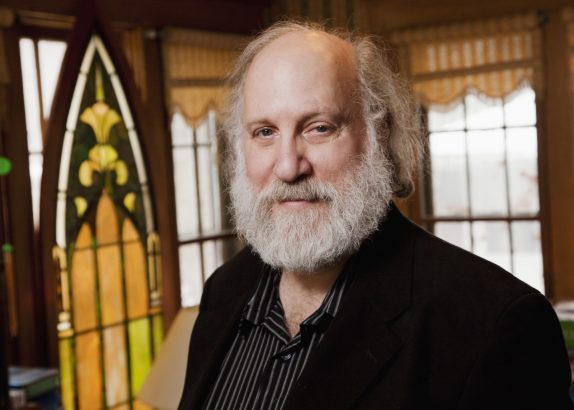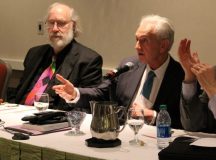After nearly two decades of trying, on 6 January the Modern Language Association’s annual meeting finally succeeded in putting this diminished but still substantial academic group on record opposing Israel. The MLA represents about twenty thousand North American literature and foreign language faculty and graduate students, down from a high of well over 30,000 in the 1970s. This time they were riding a wave of anti-Zionist hostility that has swept the academy since Hamas wantonly slaughtered over 1,200 Israelis and foreign visitors in the largest antisemitic murder spree since the Holocaust.
The unsettling fact that hostility toward Israel itself and Jews worldwide escalated almost immediately after the Hamas assault, substantially before Israel launched a military response, has not been lost on any Jewish community. The academy has been at the forefront of this effort to hold Israel responsible for Hamas’s brutality. Some faculty members apparently believe Israelis got what they deserved. When unwilling to say so, they tell us such ‘revolutionary violence’ is the price of liberation. After voicing that conviction more bluntly that most, George Washington University psychology professor and Hamas enthusiast Lara Sheehi resigned her US position to join her allies and teach in Qatar.
Something very close to that sentiment surfaced during the MLA debates. At an open meeting on 5 December, when a member from Haifa referenced Hamas’s sexual violence there was reportedly audible hissing among the anti-Zionist members attending. Was it unacceptable to impugn the character of Hamas terrorists? Were some MLA members on board with Hamas denials? Or are only anti-Zionist facts allowable in academic political debates?
We have reached the point when anti-Zionism has substantially crossed the line into antisemitism. Criticism of Israel’s conduct of the current war with Hamas does not necessarily qualify as antisemitism. Military strategy and tactics are routinely debated worldwide. The International Holocaust Remembrance Alliance (IHRA) Definition of Antisemitism expressly states that criticism of Israel comparable to that levied against other nations does not qualify as antisemitism. But claims that Israel is committing genocide in Gaza—whether ill-informed, hyperbolic, or malicious—do circulate with antisemitic effect, and should be denounced by university officials.
Numerous news stories report that both Jewish and Palestinian students feel threatened and unsafe on campus. After all, both groups have friends and relatives across Israel or Gaza who were killed or remain very much at risk. Universities should not be in the business of protecting students from intellectual challenges. But students need to feel it is safe to express their views. The dramatic rise in antisemitism worldwide suggests that assaults on pro-Israeli speech have numerically exceeded those pro-Palestinian students have faced, but both forms of advocacy must be respectable at a university.
The motion that MLA’s Delegate Assembly approved clearly insisted that only pro-Palestinian students are in urgent need of support. That message was reinforced when the DA voted down an alternative submitted by Stanford University’s Russell Berman and myself. The motion that passed, submitted by MLA’s Radical Caucus, sought protection for those who had
— condemned the Israeli government for its massive bombardment of the Gaza Strip following the Hamas incursion October 7, 2023, into southern Israel that resulted in the killing of civilians;
— criticised the US government for its unwavering economic and military support of the Israeli government;
— argued that recent events in Israel-Palestine must be viewed in the context of the ; Palestinian Nakba of 1948, Israel’s 56-year-long illegal occupation of the West Bank, and Israel’s 16-year-long land, sea, and air blockade of the Gaza Strip;
— rejected the proposition that ‘anti-Zionism is antisemitism’ as affirmed by the U.S. House of Representatives in House Resolution 894 of November 28, 2023.
MLA member Michael Saenger had a brilliant amendment that would have paired the Radical Caucus points with matching ones, covering those who had
— condemned Hamas for its brutal murders of men, women and children in Israel, and horrific sexual assaults, on October 7, 2023, the taking of over two hundred hostages, and the pervasive use of Palestinian civilians as human shields;
— criticised Iran and Qatar for their unwavering economic and military support of Hamas.
— argued that recent events in Israel-Palestine must be viewed in the context of the complex struggle between two indigenous groups in the wake of the Second World War, the eviction and dispossession of 900,000 middle eastern Jews from Arab nations, and the struggle to build nations in the Middle East;
— have expressed serious concern about the prevalence of antisemitic tropes within the discourse of anti-Zionism, as affirmed by the U.S. House of Representatives in House Resolution 894 of November 28, 2023.
But he could find no DA member willing to propose it. In any case a far more modest amendment to the RC motion was summarily dismissed. The DA rejected anything that seemed to assert a ‘false equivalency’ between Palestinian and Jewish suffering. The hierarchy of victims had to be sustained. Guilt and innocence had to be apportioned in strict separation between oppressor and oppressed.
The DA motion is now in the hands of the MLA’s Executive Council. I am a former EC member. My coauthor Russell Berman is a former MLA president. We maintained that events since 10/7 ‘have produced a unique and extremely contentious series of North American campus debates, demonstrations, and bitter social media messages with highly stressful consequences for students of varying ethnicities and political beliefs.’ ‘Some,’ we added, ‘have felt the right to express their political, cultural, or religious beliefs threatened.’ ‘Rather than press the DA to take sides in these debates, we are urging MLA’s Executive Council help preserve an educational environment where all feel free to voice their positions and concerns.’ Our motion urged that the MLA ‘take immediate steps to urge university administrators to defend from threats, harassment, and violence all faculty members, students and staff, regardless of their position on the conflict in the Middle East.’
Our opponents were well organised, leafleting the MLA convention, emailing a brochure that may have given the impression the association endorsed their agenda, and building support by electing their allies to the DA. But that may all have been beside the point. Our counter-effort was drowned in a wave of antisemitism sweeping North American campuses. The results of the DA vote were preordained. The radical Caucus’s victory came as allied with antisemitism and at the expense of reasoned debate on campus.
The DA motion is now in the hands of MLA’s Executive Council. Enraged at Israel, the DA decided that Jewish students are not worthy of respect or protection. Perhaps the EC will modify the motion so as to honour the association’s mission to support the academic freedom and political rights of all its members. But mob sentiment will be pressing them in the opposite direction.




































